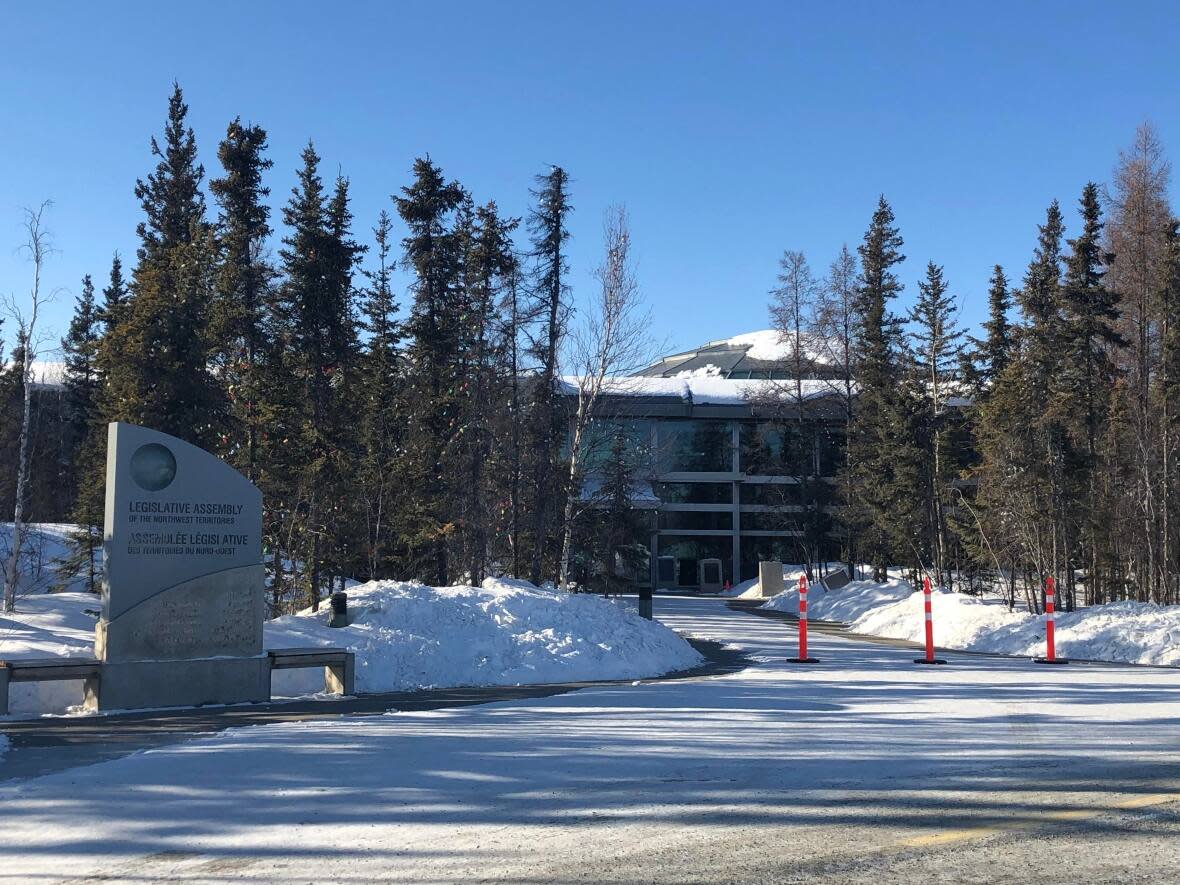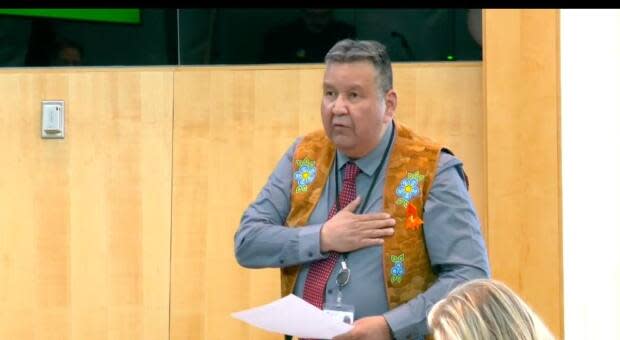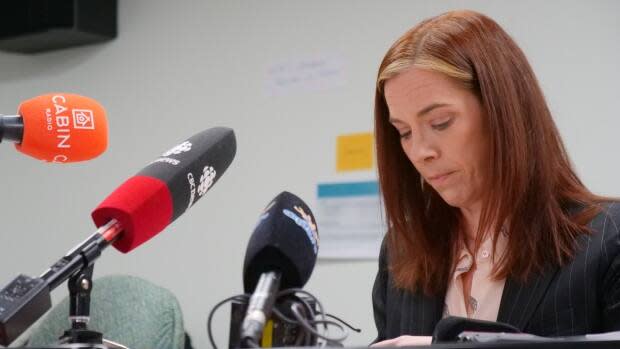House divided as N.W.T. finance minister makes final push for northern carbon tax bill

When it comes to carbon tax legislation in the Northwest Territories, MLAs have said they're still deciding who to trust — the territorial or the federal government.
The federal government has mandated that whether or not the provinces and territories like it, residents will have to start paying more for carbon emissions that result from burning fossil fuels.
Finance Minister Caroline Wawzonek introduced Bill 60 as a "made-in-the-North" approach to the federal legislation, and has said that passing the bill would allow the territory more flexibility to adjust how the carbon tax is applied.
But MLAs have criticized that bill for giving too much consideration to large emitters and not enough to residents, particularly those in the northernmost communities who already pay the highest heating bills and will be hardest hit by rising costs.
Jackie Jacobson, MLA for Nunakput, said Tuesday that passing the bill would be doing the federal government's dirty work.
"People in Nunakput already can barely put food on the table, find employment to earn income, to pay for heat, their power and their housing," he said. "How can we tax people that have nothing, nothing to give?"
Jacobson further encouraged all regular MLAs to vote the bill down.
"Whoever supports this bill, we should almost be ashamed of ourselves."
Other MLAs said that since the carbon tax is coming regardless, they'd prefer to implement the territory's plan. If the bill does not pass this week in the legislature, the territory will automatically adopt the federal government's legislation — something MLAs have said they don't understand enough about.
"Whether or not the bill gets voted down or not, the tax stays," Rocky Simpson, MLA for Hay River South, said.
"Can we trust the federal government to look after our best interests? I don't think so," he said.
"Can we trust those on the other side [of the House] to do the best? I would hope so."
"If they can't do a good job for the people of the Northwest Territories, at least us on this side have an opportunity to make change. We can change people out if we want. So I think that's important to note."

Richard Edjericon, MLA for Tu Nedhé-Wiilideh, said the way the bill was introduced doesn't reflect a working consensus government.
"We should all work together," he said. "But we're not, it doesn't seem that way."
Edjericon said he finds it "disturbing" to support a bill and show support for the territorial government, particularly when he said he isn't heard when advocating for his riding.
"I asked for simple things for my riding, simple things. I asked for a winter road. Nothing. I asked for money for inspections of the homes in my community. Nothing. I asked for homeownership repairs in my community. Nothing."
A 'tragic' divide
On March 1, the standing committee on government operations said it wouldn't support the proposed Bill as is and made four recommendations for improvements. A week later, Wawzonek tabled her response.
She said that there are not enough remaining sitting days in the February-March 2023 session to enact new legislation on the carbon tax, but that supplementary appropriations could be made in the May-June session to address MLAs concerns.
Among the solutions to do more for N.W.T. residents would be to provide higher cost of living offsets to residents who live in more expensive areas and to share 10 per cent of carbon tax revenue with community governments — double the 5 per cent the territory originally proposed.

In the legislature Tuesday, Wawzonek said that by passing the bill, the territory would retain the ability to continue to adapt its rebate programs in response to feedback from regular MLAs and the public.
"I certainly want to continue to try to look for ways between now and May, June, to see if something can be added, if something can be drafted, if there's some way that we can put it in a way that people are more comfortable in seeing the compromises that they have fought for seen reflected in the legislation," she said.
She said she finds it "regretful" that a mandate from the federal government has led to such divide in the legislature.
"I find that tragic."
Wawzonek said if the territory does keep control over how the tax is administered she plans to press the federal government on how it will help the Northwest Territories to get off fossil fuels, support energy alternatives and have residents pay less carbon tax.
MLAs will vote on the bill as soon as Wednesday afternoon and Thursday afternoon at the latest.


